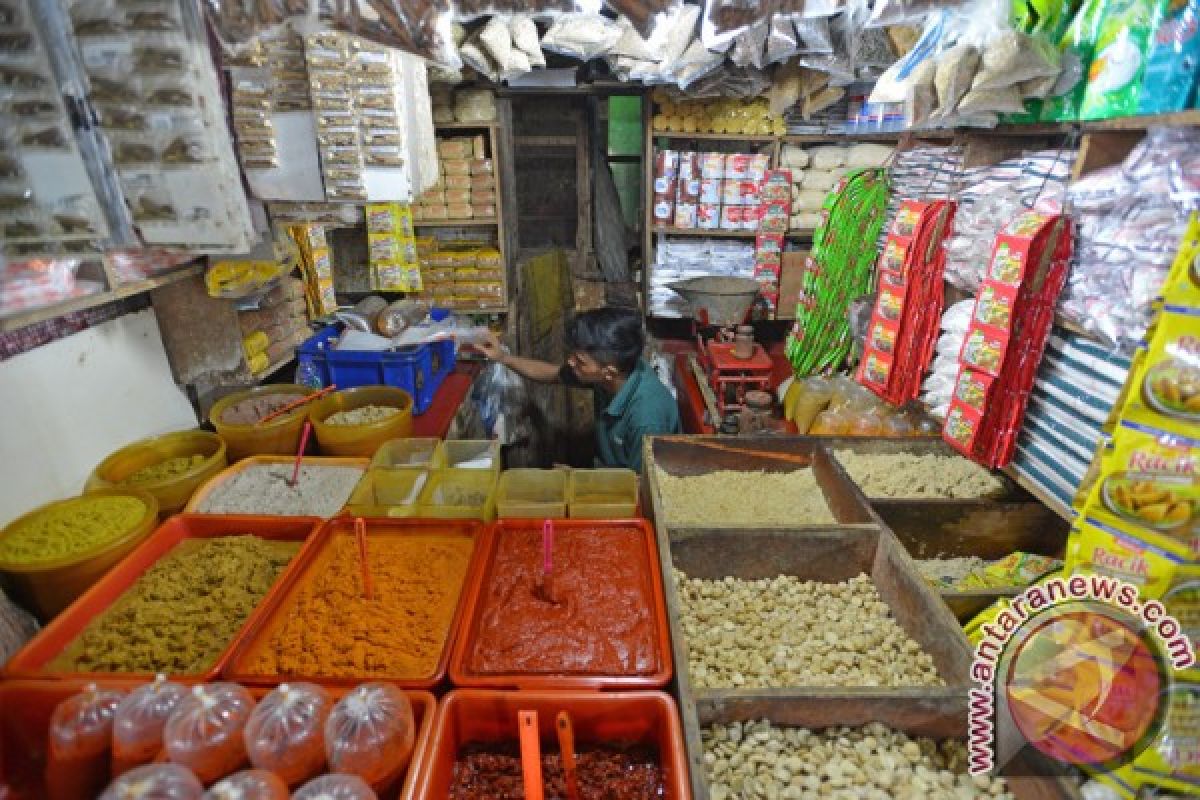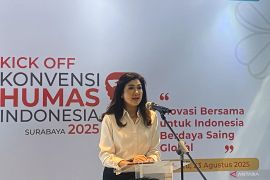"Currently, the prices of basic necessities such as beef, chicken and egg have started to rise," House Speaker Bambang Soesatyo said.Jakarta (ANTARA News) - The people hope the government will be able to control prices of basic necessities and maintain stocks in the current fasting month and ahead of Eid-el-Fitr or Lebaran festivities.
The House Speaker, Bambang Soesatyo, has asked the government to monitor and respond to the price situation in various regions in the run-up to the Lebaran festivities.
"The prices of basic necessities have begun to rise, when people are fasting in the current Ramadan month and preparing to welcome the Lebaran celebrations," Bambang Soesatyo said in a written statement on Sunday.
Soesatyo, who is popularly called Bamsoet, said the government should immediately review the markets, secure stocks and control prices.
"Currently, the prices of basic necessities such as beef, chicken and egg have started to rise," he pointed out.
Prices of shallots, curly peppers, and cayenne peppers had also inched up. The trend should be monitored because during Ramadan and Lebaran public consumption increased, he said.
Bamsoet, who is a Golkar Party politician, is worried that speculators will push up prices ahead of Lebaran. The National Police`s (Polri`s) Food Task Force should immediately take steps to check hoarding, he said. The Task Force and the Regional Economic Offices should monitor prices of basic necessities.
The central government has to take a more active role as many local governments are busy with simultaneous regional head elections (pilkada) this year. Hence, their role as regional executives in managing foodstuff stocks and price control could be affected.
"The central government should not be negligent in anticipating problems in the early stages," the chairman of the House of Representatives (DPR) said.
The Coordinating Minister for Economic Affairs, Darmin Nasution, said the state-owned logistics boards (Bulog) needed to increase and expand market operations to reduce food prices.
"Market operations are still under way but they need to be expanded to involve more traders," he said after a food coordination meeting in Jakarta on Thursday (May 24).
Nasution, a former governor of Bank Indonesia (BI), said the government intended to reduce food prices further. In addition to the expansion of market operations, the efforts would be to reduce the selling price.
"The price has actually gone down, but the decline is small. If we want to lower the price further, we also need to lower the selling price in the market operation," said Nasution.
He said domestic and imported rice stocks would be sufficient to conduct market operations. "We have assigned Bulog to carry out the market operations," said Nasution.
In the meantime, the Trade Ministry and the Transportation Ministry were working together to smoothen the distribution of basic necessities to maintain the stability of stocks across the country.
The Trade Minister, Enggartiasto Lukita, said his party was committed to maintaining price stability and availability of basic necessities for the community, especially before the celebration of Lebaran in mid-June.
"The ministries of trade and transportation synergise to distribute the staple goods through sea freight so that it can be spread all over Indonesia. The distribution has been and is being done gradually as needed, it has even been carried out since before the fasting month," said Lukita in a recent written statement.
President Joko Widodo has called on all relevant officials to maintain price stability and availability of staple stocks ahead of the National Religious Day (HBKN) 2018.
To ensure the smooth supply of basic commodities, the Ministry of Trade has assigned all Echelon 1 officials assisted by 200 Ministry officials and Food Task Force staff to conduct direct monitoring of traditional markets throughout Indonesia.
Efforts are on to ensure the achievement of HBKN 2017 can be repeated this year. At that time, the Ministry of Trade managed to control prices and inflation. It was for the first time that prices did not increase during Ramadan.
Lukita has made a visit to Pasar Karangayu, Semarang and expects the supply of basic necessities to be stable ahead of Lebaran. Commodities whose prices were stable, and even tended to fall, included sugar, cooking oil, garlic, shallots, and chillies.
Meanwhile, rice is available in the market at Rp8,950 per kilogram, less than the highest retail price set at Rp9,450. Chicken and eggs showed an increase in prices. Lukita said businesses were expected to immediately reduce prices. "We have had a dialogue and have given a deadline to the chicken farmers to immediately supply the markets," he said.
The Ministry of Trade is also organising bazaars in 350 places across Indonesia in cooperation with the Ministry of Trade and the private sector.
(A014/INE)
(T.A014/A/KR-BSR/A/H-YH)
Reporter: Andi Abdussalam
Editor: Heru Purwanto
Copyright © ANTARA 2018












